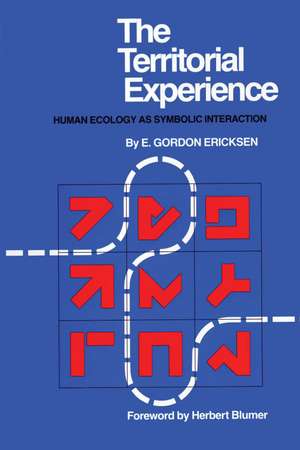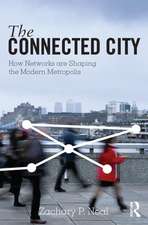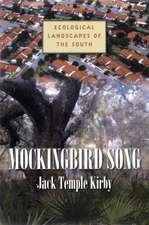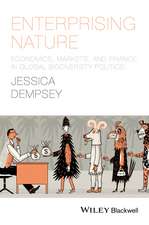The Territorial Experience: Human Ecology as Symbolic Interaction
Autor E. Gordon Ericksen Introducere de Herbert Blumeren Limba Engleză Paperback – oct 1980
Ericksen's symbolic interactionist approach to the spatial world is based on the appreciation of humans as the creative artists they are, as designers and builders of their environment. Exploring the symbolic meanings attached to space and territory, he challenges the orthodox in human ecology by introducing hypotheses and conceptual tools of analysis which link spatial facts to human motivations and meanings. With people living in a habitat which they have largely shaped for themselves—a world of airports, shopping malls, retirement villages, where human spaces convey human messages—Ericksen demands that we examine what we have done with our environment in order to survive and prosper.
This major contribution to human ecology will be of importance to specialists and lay readers in the fields of sociology, social psychology, geography, city and regional planning, urban affairs, and economics. Showing how humankind speaks in and through its physical setting, The Territorial Experience is a bench mark in communications theory.
Preț: 198.73 lei
Nou
Puncte Express: 298
Preț estimativ în valută:
38.03€ • 39.29$ • 31.63£
38.03€ • 39.29$ • 31.63£
Carte tipărită la comandă
Livrare economică 19 martie-02 aprilie
Preluare comenzi: 021 569.72.76
Specificații
ISBN-13: 9780292740846
ISBN-10: 0292740840
Pagini: 224
Dimensiuni: 152 x 229 x 15 mm
Greutate: 0.34 kg
Editura: University of Texas Press
Colecția University of Texas Press
ISBN-10: 0292740840
Pagini: 224
Dimensiuni: 152 x 229 x 15 mm
Greutate: 0.34 kg
Editura: University of Texas Press
Colecția University of Texas Press
Notă biografică
E. Gordon Ericksen was Professor of Sociology at Virginia Polytechnic Institute and State University.
Cuprins
- Foreword
- Preface
- 1. Against the Stream: The physicalists (macroecologists) – Microecologists and the act – Other polemics and false imputations – Conclusion: our metaphorical heritage
- 2. The Language and Validation of Space: Human ecology as spatial linguistics – Term-talk as thing-talk – Space causation as metaphor – Lebensraum versus devitalized space – Toward sensitizing concepts
- 3. The Power of Place: The paradigm – Aspirations: the causal nexus – Suggested problem areas of inquiry – Conclusion
- 4. The Principle of Commitment: The Normative Model: The buildup of commitment – The process of spatial coding: site to situation – Sacred space as social-conscience loading – Structural theory building – Social systems ecology: Walter Firey – Dramaturgical ecology: Erving Goffman
- 5. The Sovereignty of Function: Regions and Neighborhoods: Reference groups – Conclusion
- 6. The Principle of Insufficiency: The Assertion Model: The assertion model – The integrational spectrum – Idiomatics and the spatial nexus – Conclusion
- 7. The Frontiers of Contact: The Edges of Things: The diversity of encounters – Frontiers as collective behavior – Conclusion
- 8. What It All Means: Spatial Contingencies in Planning: Planning for countervailence: the two axes of applied ecology – The spatial paradox of the retired: trailer towns – Planning for disasters – Planning for public nuisances – Staking out society: zoning – Malls, crowding, and surrogate homes – Conclusion
- Notes
- Bibliography
- Index
Descriere
Ericksen gives us a fresh perspective on human ecology by reconstructing the discipline in a way that genuinely reflects the realities of our territorial life.















